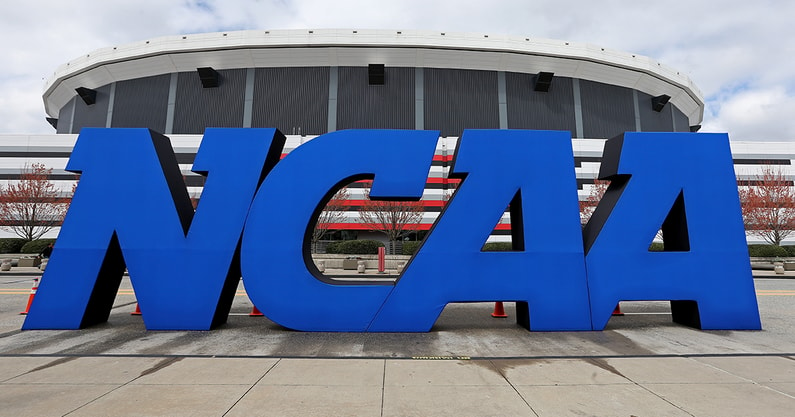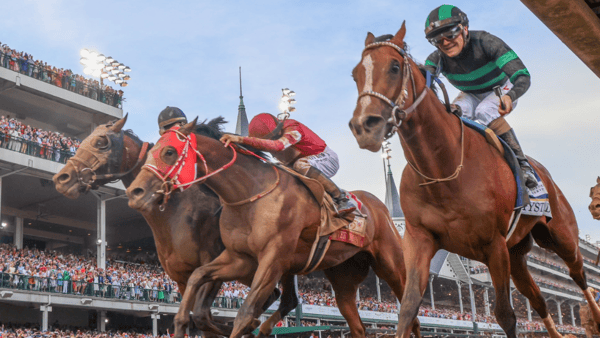NCAA modifies sports gambling penalties, shelves Summer Basketball

As sports gambling becomes legal in more and more states (including Kentucky!), the NCAA has created a new penalty structure for wagering-related violations.
Previously, student-athletes who wagered on sports at any level (college or pro) would lose one full season of eligibility. Now, the penalties are harshest for those who influence the outcome of their own games, bet on sports at their own schools, and bet on their sports at other schools. For all other sports gambling violations, like betting on a professional sports game, penalties will be based on the dollar value of the wagers.
For all wagering-related violations that were reported on or after May 2, the following guidelines will apply:
- Student-athletes who engage in activities to influence the outcomes of their own games or knowingly provide information to individuals involved in sports betting activities will potentially face permanent loss of collegiate eligibility in all sports. This would also apply to student-athletes who wager on their own games or on other sports at their own schools.
- If a student-athlete wagers on their own sport at another school, education on sports wagering rules and prevention will be required as a condition of reinstatement, and the loss of 50% of one season of eligibility will be considered.
- For all other wagering-related violations (e.g., wagering on professional sports), cumulative dollar value of the wagers will be taken into consideration with the following terms for reinstatement:
- $200 or less: sports wagering rules and prevention education.
- $201-$500: loss of 10% of a season of eligibility, plus rules and prevention education.
- $501-$800: loss of 20% of a season of eligibility, plus rules and prevention education.
- Greater than $800: loss of 30% of a season of eligibility, plus rules and prevention education.
“These new guidelines modernize penalties for college athletes at a time when sports wagering has been legalized in dozens of states and is easily accessible nationwide with online betting platforms,” said Alex Ricker-Gilbert, athletics director at Jacksonville and chair of the DI Legislative Committee. “While sports wagering by college athletes is still a concern — particularly as we remain committed to preserving the integrity of competition in college sports — consideration of mitigating factors is appropriate as staff prescribe penalties for young people who have made mistakes in this space.”
Transfer Portal Windows shortened
This is just one of the moves the NCAA Division I Legislative Committee announced today. The committee also introduced a proposal to shorten the transfer portal windows from 60 total days to 30. Under the existing rules, football players have 45 days following the season (Dec. 5 to Jan. 18) to notify their schools they want to transfer and another 15 days in the spring (April 15 to 30). This proposal would cut that total time in half, to 30 days.
Top 10
- 1New
Iowa State gambling
Staff members punished
- 2
Tennessee AD
Reacts to Texas roster cost
- 3Hot
2026 NFL Mock Draft
QBs dominate without Arch Manning
- 4
Second-guessing Sark?
Ewers-Manning decision in spotlight
- 5Trending
Fiery crash video
Alijah Arenas football surfaces
Get the On3 Top 10 to your inbox every morning
By clicking "Subscribe to Newsletter", I agree to On3's Privacy Notice, Terms, and use of my personal information described therein.
From here, various committees will review the proposal and offer feedback, with a final vote coming in October.
Summer Basketball initiative pushed off to next year
Remember John Calipari’s big idea for Summer Basketball? Calipari first pitched an August exhibition season last October and it made its way to the NCAA Division I Basketball Oversight Committee. For now, that’s where it will stay. The committee decided not to recommend the concept for the 2023-24 legislative cycle because of other, more pressing issues but said it will continue to review it for future cycles.
Details of the initial draft concepts included:
- Participation against a Division I opponent in up to two exhibition contests, two scrimmages or one tournament-style event (not to exceed two contests in length) during a summer in which a basketball team is not engaged in a foreign tour.
- The exhibitions/scrimmages could be open to the public.
- Contests could be played only in the second half (weeks five through eight) of a school’s permissible eight weeks of required summer athletic activities.
- Student-athletes could not miss class to participate in Basketball Summer Initiative contests, including associated activities such as travel, pregame shoot-arounds, etc.
- Teams could participate in contests within the U.S., a U.S. commonwealth or a U.S. territory.
The committee sent out a survey about summer basketball to all 32 Division I conferences. Here are the results:
- 69% of men’s basketball student-athletes and 63% of women’s basketball student-athletes who participated strongly or somewhat supported summer competition
- 47% of men’s basketball coaches were supportive and 47% unsupportive; 59% of women’s basketball coaches participating in the survey were not supportive of the concept.
- Over 60% of the campus administrators for men’s and women’s basketball surveyed were not supportive of the concept, and more than 60% of faculty athletics representatives also did not support the concept.
The women’s working group did suggest 3-on-3 competitions in the summer to help with skill development and assist in the pipeline of future men’s and women’s Olympic and world championship competitions. That will also be under consideration as discussions continue.
Got thoughts? Subscribe to KSR+ to continue the conversation on KSBoard, the KSR+ Message Board.









Discuss This Article
Comments have moved.
Join the conversation and talk about this article and all things Kentucky Sports in the new KSR Message Board.
KSBoard